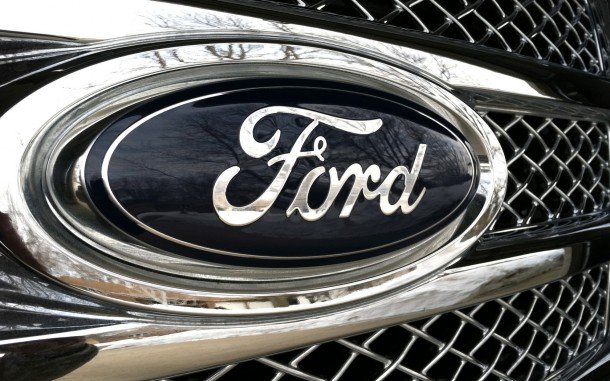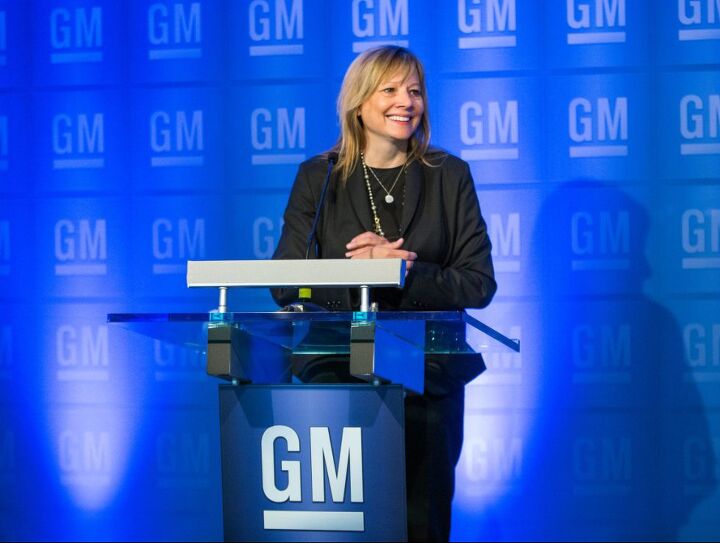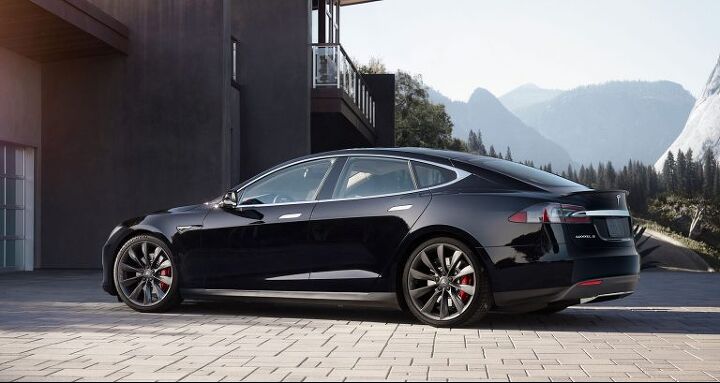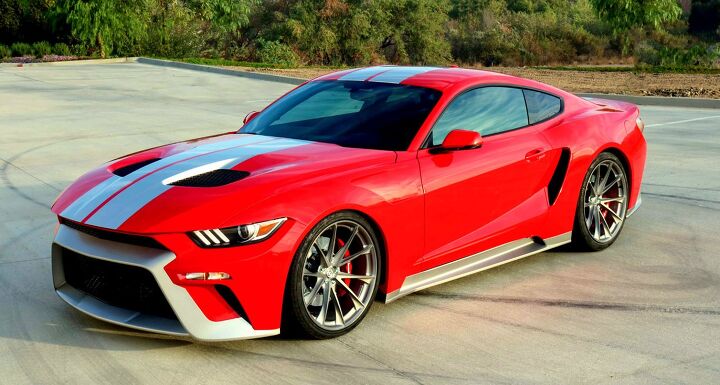#AutonomousVehicles
Study: People Don't Trust Uber or Lyft to Build Self-Driving Cars
A recent study has discovered most drivers prefer to see traditional automakers developing their autonomous cars, not ride-hailing companies like Uber or Lyft.
In Inrix’s Connected & Autonomous Vehicle Consumer Survey, 5,045 drivers from five countries weighed in on the subject. Roughly 30 percent of the pool indicated they “trusted” established automotive manufacturers to build their self-driving cars, with 20 percent feeling similarly about tech companies like Google’s Waymo. Only 4 percent said they had confidence in ride-hailing providers.
Some of that could be down to Uber’s lackluster performance. The company’s autonomous development efforts has seen it butting heads with regulators, annoying the entire city of Pittsburgh, and weathering high-profile traffic incidents.
Pittsburgh is Getting Tired of Uber's Corporate Nonsense
Pittsburgh boasts more bridges than any other city its size and Uber seems intent on burning every single one. After the ride-hailing company offered to test its autonomous platform in the city, Pittsburgh welcomed it with open arms. Now it’s starting to seem like it got a raw deal. Uber has become like the city’s drug-addicted teen — permitted to stay, despite very disappointing behavior and repeated broken promises. You get the sense its only one big screw-up away from being thrown out on its ass.
It hasn’t even been a full year and residents and officials are already claiming Uber has already let the city down. You have to place some of the blame on Pittsburgh for enabling Uber’s uncouth behavior, but it didn’t force it to abandon corporate citizenship. In the last nine months, Uber has withdrawn its promised support of Pittsburgh’s bid for a $50 million federal transportation grant and completely failled at creating jobs it promised struggling communities. It has also started charging fares for its driverless taxis, something the city initially assumed would be free in exchange for the company having the privilege of testing there.
Fields Defends Ford's Honor in Tense Shareholders Meeting
As anticipated, Ford CEO Mark Fields was grilled today over his plans to improve the company’s waning fortunes by board members who had scheduled extra time to question him.
Hot topics at the annual meeting centered on why profits are falling, what is Ford doing about the market shift toward SUVs, and how the company’s colossal investments into technology are affecting its present-day financial situation. Ford has poured billions into self-driving vehicles and ride-sharing platforms as its traditional car business loses some ground to General Motors in a slowing U.S. market. Fields spearheaded Ford’s rebranding as a mobility company, but many have suggested this future-focus isn’t healthy for the brand.
Fields stuck to his guns, emphasizing that Ford was heading “aggressively but also prudently” into “the biggest strategic shift in the history of our company.”
Uber Builds New AI Team North of the Border as It Battles Lawsuit in the U.S.
Uber must be feeling somewhat confident in its legal battle with Waymo over stolen autonomous tech, because it’s assembling a new artificial intelligence team in Canada.
The group will serve as part of Uber’s Advanced Technologies Group, which has found itself at the core of the lawsuit, and focus on enhancing the company’s autonomous vehicle software.
Judge Says There's 'No Smoking Gun' in Waymo's Autonomous Car Case Against Uber
The U.S. judge hearing Alphabet and Waymo’s case against Uber Technologies over pilfered trade secrets stated Wednesday that the inquest lacked clear evidence of any wrongdoing — making his decision on whether to issue an injunction against the ride-hailing service a difficult one.
U.S. District Judge William Alsup — who has already proven himself a no-nonsense individual — explained while there was undisputed proof engineer Anthony Levandowski had downloaded 9.7 gigabytes of company files prior to leaving Alphabet Inc.’s autonomous vehicle program, there wasn’t enough to indicate he conspired directly with Uber to share those trade secrets.
With nearly the entirety of the case revolving around that singular incident, this is a major problem for Waymo.
Study: Overall Trust of Autonomous Vehicles Declines, and No One Cares What Generation X Thinks
Poor Generation X. Isolated, ignored and cynical, they brought us great music in the early-to-mid 1990s, but their opinion on self-driving cars and autonomous safety features just isn’t important.
At least, that’s the feeling you get while reading the results of J.D. Power’s U.S. Tech Choice Study. The company polled 8,500 Americans who bought a vehicle during the past five years, asking them how they felt about the emerging technology.
Naturally, large generation gaps appeared, not the least of which was the elimination of Gen Xers in favor of the opinions of Boomers, Generation Y and Z. So, how does the opinions of the largest car-buying cohort compare to that of the newest?
Uber Loses Another Executive as Self-driving Program Head Quits
Despite having put in as much testing time as most of the major players, experts have remained skeptical of Uber’s autonomous driving program. This isn’t because it lacks the necessary technology or hardware, but because it lacks a stable corporate environment. There have been no shortage of ugly headlines surrounding the company this year, and it’s beginning to hemorrhage essential staff members. This week, Uber lost its vice president of global vehicle programs, Sherif Marakby, and sustained another blow to its self-driving aspirations and pride.
While the ride-haling service has declined to elaborate on the reasons for Marakby’s exit, he had only been with the company since last April. After twenty-five years with Ford, Uber poached him specifically for his expertise in autonomous development and electronic safety systems.
This loss follows the departure of Uber’s president, vice president of product and growth, senior director of engineering, its head of communications, head of AI labs, and numerous members of its self-driving programs — all within the last few months.
Autonomous Uber That Crashed in Arizona May Have Been Less Innocent Than Previously Thought
The recent collision in Tempe, Arizona, where an Uber Technologies driverless Volvo collided with another vehicle before rolling onto its side, might not have been as cut and dried as it originally seemed. While the Tempe Police Department originally deemed the autonomous car not to be at fault, the incident report suggest that it might have been taking the same sort of risks that any inattentive flesh-based operator might have.
EE Times obtained copies of the police report and reached out to Mike Demler, senior analyst at The Linley Group, to make sense of exactly what happened at the scene. The popular assumption was that a Ford Edge failed to yield during a left hand turn, impacting with the Volvo XC90 test vehicle and forcing it onto its side.
That’s not quite how it happened.
Volkswagen's Driverless Creation is Everything That Scares People About Autonomous Cars
Unable to get excited about the vehicle pictured above? Maybe that’s because this Volkswagen concept embodies everything people who don’t want to read about self-driving cars hate.
See, it has a name — Sedric. Which is apparently a combination of three words — “self,” “driving,” and, you guessed it, “car.” It’s just so appallingly cute. Which, like the existential threat to personal freedom that surrounds the technology, is another thing that turns off gearheads when vehicles resembling shapeless computer mouses or refrigerators crop up.
While VW’s concept, which is more of a pod than a car, is meant to herald the company’s autonomous future and serve as the patriarch of the company’s anticipated self-driving offerings, it’s really just a testbed for VW engineers to tinker with. Designed for Level 5 (or “full”) autonomy, Sedric is just the beginning, VW claims. To many, that might sound like a threat.
New Transportation Secretary Has Obama's Self-driving Guidelines Under a Microscope
Last September, the Obama administration released a list of 15 guidelines to all automakers looking to develop and market a self-driving vehicle. Companies were asked to voluntarily follow the rules and report back to the federal government with useful information. It was a somewhat confusing exercise and raised a flurry of questions and concerns.
At the time, Obama wrote that the rules would provide “guidance that the manufacturers developing self-driving cars should follow to keep us safe.” Not only would the totally voluntary rules show the government that certain vehicles were safe for public roads, but it would show every interested citizen “how they’re doing it.”
That list is now in the hands of newly minted Transportation Secretary Elaine Chao. While the two administrations differ in many areas, Chao seems to be of a similar mind as Obama on the issue of self-driving cars. That doesn’t mean the guidelines won’t change.
GM Lobbyist Says Company Doesn't Push Bills, Lawmakers Disagree
For now, legislation restricting the use of those pesky self-driving cars is mainly up to individual states. Because no one wants an experimental, untested car piloting their local roadways, states have erected legislative safety barriers that, for the most part, restrict pilot projects in certain areas, or on certain roads.
As everyone waits for the National Highway Traffic Safety Administration to make up its mind and put blanket regulations in place, an angry chorus of complaints from Silicon Valley startups is growing louder, accusing state lawmakers of favoring the old guard when it comes to fostering automotive technology.
Only naturally, concerns about corporate money influencing government decisions arose. One automaker’s political action fund seems more active than others
The Mobility Company Known as Ford is Investing $1 Billion Into an Artificial Intelligence Startup
Ford Motor Company intends to invest $1 billion into tech startup Argo AI over the next five years, giving the Blue Oval a majority stake in the company as it continues to reach for the goal of producing a fully autonomous vehicle by 2021.
The Pittsburgh-based Argo will help the Detroit automaker develop a “virtual driver system” for its proposed commercial ride-sharing fleets before moving on to retail vehicles. Ford even went so far as to suggest that the software it develops with Argo could be licensed to other companies.
While still officially an automaker, the Blue Oval really is going all in on its new identity as a mobility company and it isn’t afraid to remind everyone of all of the important work it feels that it is doing.
'Startling Paranoia': Ex-Autopilot Director Sued by Tesla, Fires Back
The former director of Tesla’s Autopilot program has choice words for his former employer.
Sterling Anderson is being sued by Tesla for stealing confidential information, which he allegedly put to use at a new autonomous vehicle start-up. According to Bloomberg, the electric automaker isn’t happy about his attempts to hire away Tesla employees, either.
In his response to the suit, Anderson doesn’t have very nice things to say about Tesla.
Salespeople Vs. Reality: When Dealers Misrepresent Technology, You Lose
Industry watchdogs are becoming increasingly concerned that salespeople are misrepresenting new vehicles’ semi-autonomous features to customers. Considering that most salespeople work on commission, consumers are used to hearing that prices are non-negotiable or that they will get a “great deal” on their trade-in. Dealer fibbing is par for the course.
However, claiming a car’s safety capabilities are more robust than they actually are — either due to greed or ignorance — can cost both parties more than a few extra bucks.
TTAC News Round-up: Ford Considering Legal Action Over Copycat Custom
Some California tuners are in hot water with Ford after bringing a custom Mustang to SEMA that intentionally looks like the blue oval’s flagship supercar.
That, Michigan’s historic Willow Run factory may be paving the way for the automotive future, Volkswagen is being sued by yet another state, and VW’s chairman is getting back up on the hook as German prosecutors place him back under the microscope… after the break!




























Recent Comments